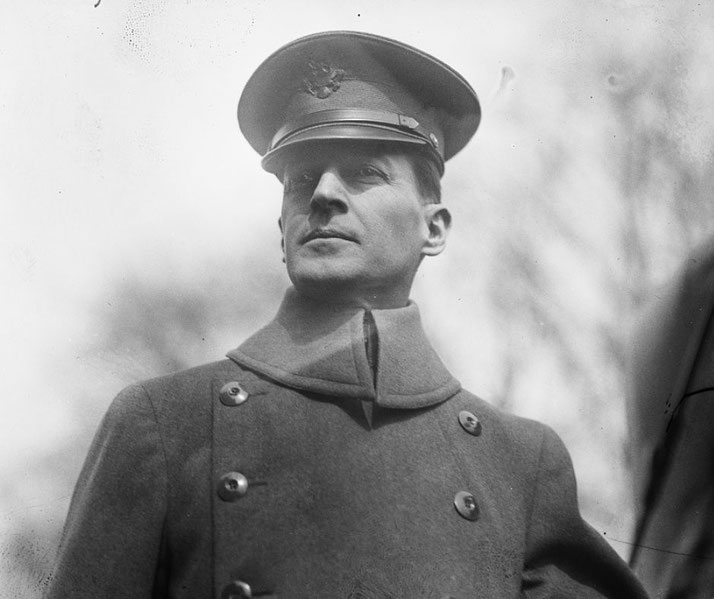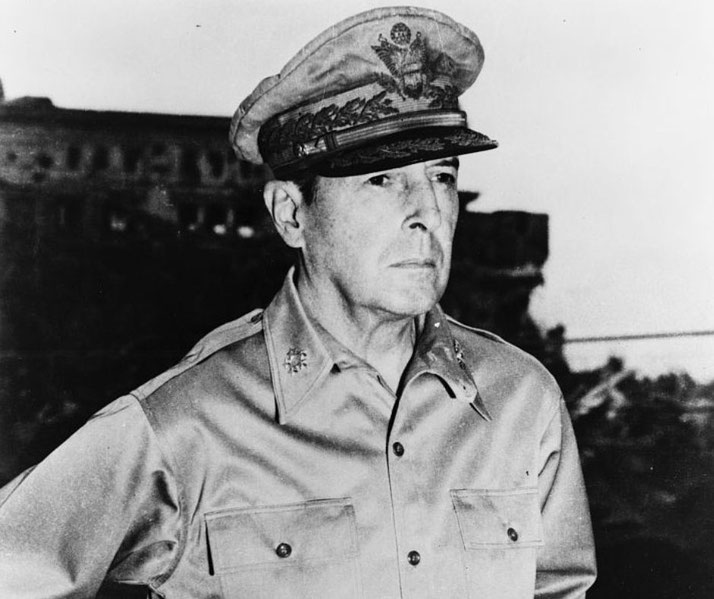Douglas MacArthur: the uncompromising general who dominated the US army in the 20th century

Douglas MacArthur became one of the most important military figures of the twentieth century. He held command in two world wars and guided American military policy during the early Cold War.
His career covered nearly fifty years of service and included campaigns in multiple areas of war. MacArthur built a reputation as a resolute commander who refused to compromise on his own vision of strategy and leadership, and he often attracted both praise and criticism as a result of his strong personality.
Early life and military education
On 26 January 1880, MacArthur was born in Little Rock, Arkansas. His father Arthur MacArthur Jr had served as a Union officer during the American Civil War and had been awarded the Medal of Honor for his bravery as a lieutenant at the Battle of Missionary Ridge.
He later rose to the rank of lieutenant general. His mother Mary Pinkney “Pinky” Hardy MacArthur came from a well-known Virginian family and had high ambitions for her son.
During his childhood, MacArthur lived at various military outposts such as Fort Selden in New Mexico and Fort Sam Houston in Texas, which were the locations of his father’s postings, and these experiences created a strong connection to army life.
In 1899, he entered the United States Military Academy at West Point, where he graduated first in his class in 1903 with a record score of 98.14 percent.
At West Point, he became cadet first captain, the highest-ranking cadet position, and he developed a belief that discipline, honour, and military service were a soldier's lifelong duty.
His role in World War One
In the early years of his career, MacArthur served in the Philippines, Japan, and the United States.
During the First World War, he gained distinction in France as part of the American Expeditionary Forces.
As chief of staff of the 42nd “Rainbow” Division, he became known for personal courage and the ability to inspire those under his command.
He fought in major battles including Saint-Mihiel and the Meuse-Argonne Offensive.
By 1918, he had achieved the rank of brigadier general at only thirty-eight years of age, and he left Europe as a decorated officer who had received two Distinguished Service Crosses and seven Silver Stars for gallantry in action.

During the interwar years, MacArthur held several important positions. He served as superintendent of West Point from 1919 to 1922, where he updated the curriculum and gave more importance to athletics.
Then, in 1930 he became Chief of Staff of the United States Army. Over these years, he introduced reforms to modernise the army and to prepare it for future wars.
In 1935, he travelled to the Philippines to serve as Military Advisor to the Philippine Commonwealth, where he organised the new Philippine Army and worked closely with President Manuel L. Quezon.
After retiring from the US Army in 1937, he remained in the Philippines as Field Marshal of the Philippine Army, a title unique to that force.
This position was part of America’s growing commitment to defend the islands from Japan.
His pivotal leadership in World War Two
After the Japanese attack on Pearl Harbor in December 1941, MacArthur returned to active duty as commander of United States Army Forces in the Far East.
He attempted to resist the Japanese invasion of the Philippines, although his forces were heavily outnumbered.
So, in March 1942, President Franklin Roosevelt ordered him to leave the Philippines for Australia.
Upon arriving in Melbourne, MacArthur made his famous declaration, “I shall return.”
That same year he received the Medal of Honor for his leadership in the defence of the Philippines, which made him and his father one of the few father-and-son pairs to receive the award.
From Australia, he directed the Allied advance in the Pacific and developed the strategy of “island hopping,” which targeted weaker enemy positions and avoided heavily defended strongholds.
Key battles in this campaign included New Guinea, Leyte Gulf, and Luzon. In October 1944, he fulfilled his promise when he returned to the Philippines at the head of a powerful invasion force.

Following the Japanese surrender in 1945, MacArthur became Supreme Commander for the Allied Powers in Japan where he oversaw major reforms that dismantled Japan’s military government and rebuilt the country as a democratic state.
Under his authority, a new constitution came into effect, in which women gained the right to vote, land was redistributed, and political institutions were established that transformed Japanese society.
Between 1945 and 1951, his administration carried out one of the most ambitious occupations in modern history, and many Japanese citizens respected his fair treatment of the population while he maintained strict control.
During these years he worked closely with Prime Minister Shigeru Yoshida to guide Japan’s recovery.
MacArthur's downfall in the Korean War
At the outbreak of the Korean War in June 1950, MacArthur once again found himself at the centre of a global conflict.
He commanded United Nations forces and planned and carried out the amphibious landing at Incheon on 15 September 1950, which allowed the recapture of the capital city of Seoul.
His decision to push beyond the 38th parallel aimed to unify Korea under a pro-Western government.
However, when Chinese forces entered the war in late 1950, United Nations troops were forced to retreat, and the conflict reached a stalemate that frustrated political and military leaders.
MacArthur called for the use of atomic bombs and the blockade of China’s coast, measures that brought him into direct conflict with President Harry Truman.
As a result, MacArthur publicly criticised Truman’s policies, and his relationship with the president worsened.
In April 1951, Truman dismissed him from command, insisting that civilian control over the military remain complete.
MacArthur returned to the United States to a hero’s welcome and delivered a noted speech to Congress in which he declared, “Old soldiers never die, they just fade away.”
In retirement, he wrote his memoir Reminiscences, which was published in 1964, and he advised several political figures, but he never again held military or political office.
On 5 April 1964, he died in Washington, D.C., and he was buried with full military honours at the MacArthur Memorial in Norfolk, Virginia.
What do you need help with?
Download ready-to-use digital learning resources
Copyright © History Skills 2014-2025.
Contact via email
With the exception of links to external sites, some historical sources and extracts from specific publications, all content on this website is copyrighted by History Skills. This content may not be copied, republished or redistributed without written permission from the website creator. Please use the Contact page to obtain relevant permission.





